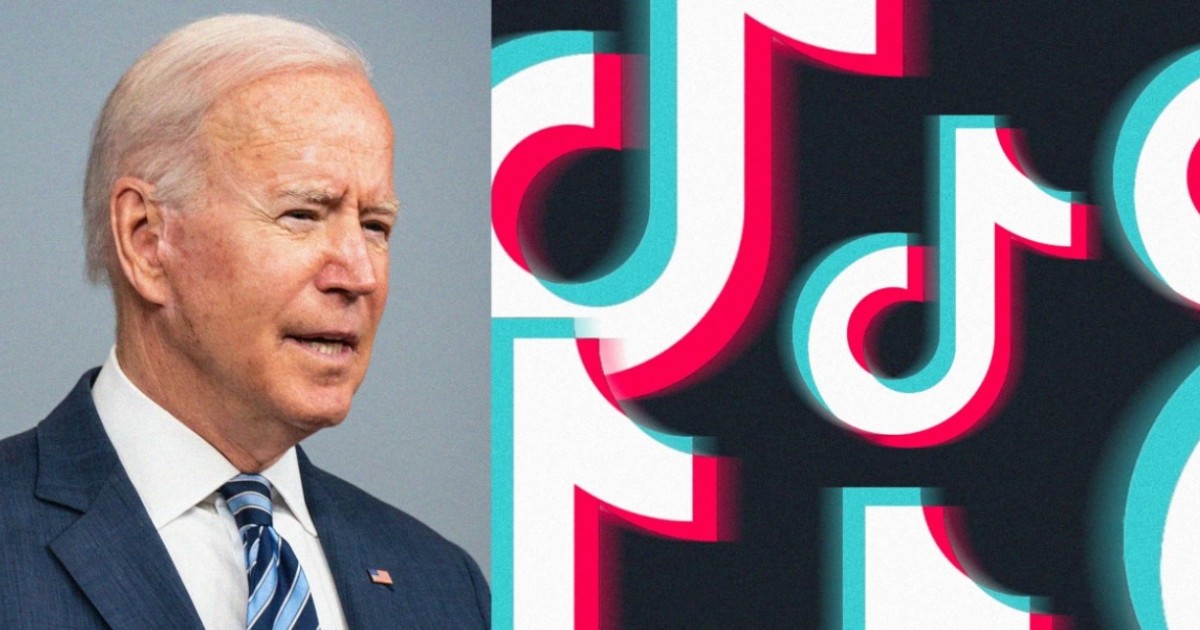By Kevin Collier and Scott Wong -
NBC News
A bipartisan group of senators introduced a sweeping bill on Tuesday that would allow the federal government to regulate and even ban foreign-produced technology, including TikTok.
The bill, called the Restricting the Emergency of Security Threats that Risk Information and Communications Technology Act, or RESTRICT Act, would give the Secretary of Commerce broad powers to regulate technology produced by six countries that have adverse relations with the United States: China, Cuba , Iran, North Korea, Russia and Venezuela.
The White House on Tuesday endorsed the RESTRICT Act, calling it a "systematic framework for addressing technological threats to the security of Americans."
[TikTok users denounce that a “terribly realistic” filter damages self-esteem]
Although the bill does not cite TikTok by name, the senators who introduced it repeatedly raised fears that TikTok, a short video-sharing social network owned by the Chinese company ByteDance, widely popular in the United States and the rest of the world, provide Beijing with a constant stream of information about its users.
“It is a recognized fact that TikTok is a threat to our national security,” Senator John Thune, Republican of North Dakota, told a news conference.
Thune, a member of the Republican leadership and senior member of the Commerce Committee, is sponsoring the bill along with Senate Intelligence Committee Chairman Mark Warner, D-Va.
The legislation has 10 co-sponsors, five from each party.
This is how the new TikTok restrictions will work on accounts of minors
March 2, 202301:53
“I am particularly concerned about TikTok's connections to the Chinese Communist Party, which repeatedly and repeatedly spies on US citizens,” Thune added.
Brooke Oberwetter, a spokesperson for TikTok, said in an email that the Biden government already has the power to oversee the application through the Committee on Foreign Investment in the United States, known as CFIUS, and that a blanket ban would be counterproductive to US interests. .
“We appreciate that some members of Congress remain willing to explore options to address national security concerns that do not have the effect of censoring millions of Americans,” Oberwetter said.
“A US ban on TikTok is a ban on the export of American culture and values to the more than 1 billion people who use our service around the world,” he alleged.
[Parents and educational authorities, concerned about the dangers of TikTok in the youngest]
Oberwetter noted that TikTok had negotiated a deal with CFIUS that the Biden Administration has been reviewing for six months.
But the bill's implications go beyond TikTok.
It is designed so that the federal government can preempt situations in which technology produced in any of the six authoritarian countries named in the bill becomes popular in the US, as was the case with the Russian antivirus company. Kaspersky, which is banned from federal computers, and Chinese telecommunications equipment makers Huawei and ZTE.
The White House gives an ultimatum to all federal agencies on the use of TikTok
March 1, 202300:24
The bill does not explicitly say how a ban would take effect.
Warner said at Tuesday's news conference that he "gives the Commerce Secretary a number of tools to mitigate, divest, up to and including banning" technology that would hurt the United States.
The tools apply to technology that can be used to interfere with elections, is designed with deceptive intent, or may pose a risk to national security, according to the bill.
[With a TikTok video he managed to make the book written by his father go viral 11 years after it was published]
The legislation is part of a widespread campaign against TikTok.
The White House has instructed all federal employees to remove it from their work devices before the end of the month, after Congress passed a ban on government devices late last year.
Several state governments have already banned it on work devices, and some universities have blocked students from accessing the app over the school's Wi-Fi connection.
Like most mobile phone apps, TikTok has access to and collects a lot of user data, which the company says helps improve your experience.
The company has had to acknowledge at least one episode in which access to that data was abused.
In December it admitted that some employees had spied on the location data of journalists in an attempt to identify which of its employees were speaking to the media.
Despite broad bipartisan support for some kind of crackdown on TikTok, some senators expressed reservations about a narrow approach that doesn't comprehensively address data security, including regulating data brokers operating in the United States and that scrape Americans' data and sell it, including to foreign companies or entities.
President Joe Biden could have more power to rein in foreign tech companies.NBC News;
Getty Images
"While it's sensible to restrict TikTok on phones and government interests and the like, if that's all you do, the big winners are these sleazy private data brokers who will move right in and collect all of that," the president of the company said. Senate Finance Committee, Democrat Ron Wyden, in an interview on Tuesday.
[China warns of potential for “conflict” unless US changes course]
The United States needs a "comprehensive policy that starts to close the gaps," Wyden said.
Many privacy experts claim that while TikTok is a threat to the privacy of Americans, it is not unique in that regard.
Prolific Chinese cyberspies routinely hack Americans' data.
The United States lacks a significant data privacy law, and an entire industry of data brokers buys, sells, and trades Americans' private information.
Caitriona Fitzgerald, deputy director of the Electronic Privacy Information Center, said TikTok represents "maybe 2% of the problem" when it comes to privacy for Americans.
“Uncovered by privacy law in the United States, there are millions of apps that collect and abuse the data of Americans,” he said.

